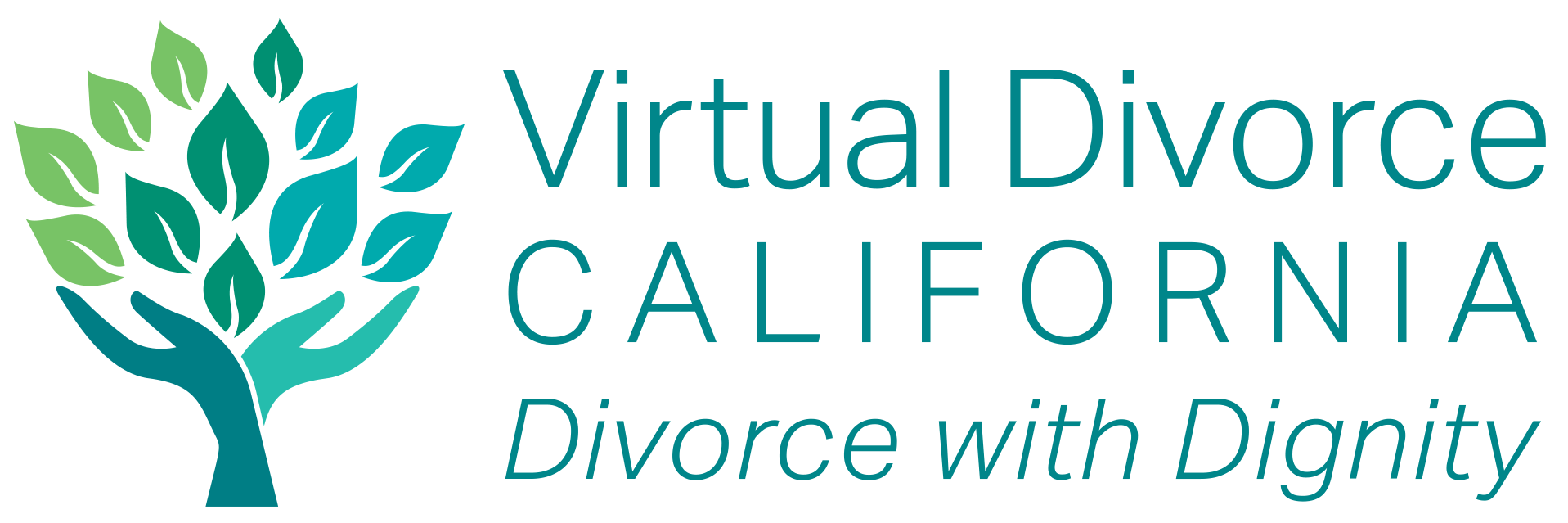. . . For Couples Contemplating Divorce &
the Professionals Who Guide Them . .

THE DIVORCE PROCESS YOU CHOOSE
is the most critical decision you will make!
Virtual Divorce CA offers this public service education to
ensure you are equipped to make an informed decision
about the divorce process that best fits your family’s:
values, budget and unique needs.
CLICK HERE TO REGISTER – FREE!
LEARN the EMOTIONAL, FINANCIAL & LEGAL
PROS & CONS of the 4 LEGAL WAYS TO DIVORCE:
• Do-It-Yourself (Kitchen-Table) Divorce
• Traditional Litigated Divorce
• Mediation (Co-Mediation, Team Mediation)
• Collaborative Divorce
This is a balanced presentation. Bring questions to our financial, mental health and legal professionals. All our professionals specialize in divorce and are trained in both mediation and collaborative divorce, as well as litigation. Much information is provided. Attend as often as you wish!
When trust deteriorates, your spouse is more likely to hear reasonable options from professionals. There is no advantage to attending alone. You must decide together on the process you use to divorce. Set the tone for good will by inviting your spouse to attend and receive the same information to allow you to make a joint decision with your family’s needs, budget and values in mind. (See “Next Steps” for specific guidance on “Resources” page.)
By educating yourselves, you both save time and money – you avoid paying professionals for basic, yet crucial information.

Are you a therapist, financial advisor or other professional prepared to direct your clients’ immediate next steps when clients decide to divorce or are on the fence about it? Professionals not specializing in divorce find our workshops extremely helpful. We also offer Divorce Options® at no cost to groups of ten or more, e.g. financial firms, church groups, mental health/substance abuse clinics (for clinicians as well as clients).
CLICK HERE TO REGISTER – FREE!
Note: If our dates or times do not work for you, go to CollaborativeDivorceCalifornia.com. Under their “Events” tab, find a Divorce Options® Workshop offered by other Collaborative Divorce practice groups across California. While presentation slides are the same, different presenters and groups have different styles and content, and some groups charge a fee. More Questions? Text Ria Severance, LMFT at: 626.354.4334
When Deciding which Divorce Process is Best for Our Family . . .
Choosing the right divorce process for your family is the single most important decision you will make!
When choosing a divorce process (litigation, do-it-yourself, mediation, or collaborative divorce) consider three things: your budget, your family’s specific needs and your values:
- Which process is most likely to aggravate tensions into the future?
- Which will allow for a more respectful transition for your family?
- Which divorce method is likely to encourage your being civil and respectful into the future?
- Which divorce process is likely to create a respectful co-parenting context for raising your children?
- Which most considers your children’s unique needs and wellbeing?
- Which process is most likely to help you preserve access to your extended family members and communities?
- Which process will most easily accommodate children’s special needs, religious education, or plans to pay for college?
Speak to one of our neutral financial specialists regarding your family’s budget for divorce. If Ligitation or a Collaborative Divorce aren’t affordable, a Mediation, Co-Mediation or Team Mediation may be more cost-effective for you.
You do NOT have to trust one another to ensure financial transparency in a Mediation. It is also a myth that you must be civil and respectful to Mediate. Many high-conflict couples get through a Mediation with adequate communication and financial support.
Unlike other divorce processes, certain types of Mediation and Collaborative Divorce actually work to increase your skill to: manage conflict, co-parent, regulate emotions, and communicate effectively for future interactions. The quality and tone of your interactions directly impacts your children, your extended families and extended communities for years to come.

